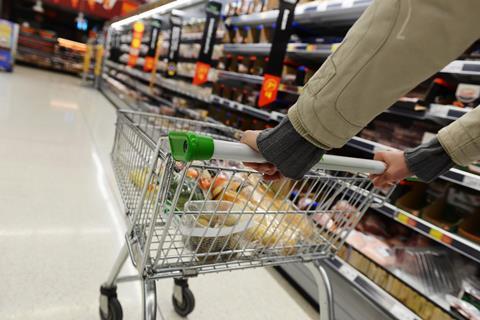
Top story
Grocery sales returned to modest growth over the past 12 weeks for the first time in more than a year as inflation soared to almost 10%.
Newly published monthly take-home grocery figures from Kantar show that supermarket sales rose by 0.1% in the 12 weeks to 10 July 2022, the first rise for since April 2021.
Supermarket sales were boosted by rapidly increasing prices at the tills as supply chain issues have driven costs up across the industry, meaning like-for-like grocery price inflation now stands at 9.9% over the past four weeks.
That figure marks the second highest level Kantar has recorded since tracking inflation in 2008.
Fraser McKevitt, head of retail and consumer insight at Kantar, comments: “Grocery prices continue to soar to near record-breaking heights and have jumped by another 1.6 percentage points since last month. With grocery price inflation at almost 10%, people are now facing a £454 increase to their annual grocery bills.”
As prices rise, shoppers are adjusting their behaviour and are increasingly turning to own-label products to drive down the cost of their weekly shop. Supermarkets’ own lines are growing by 4.1% this period, while sales of branded items have fallen by 2.4%.
McKevitt commented: “It’s a complex picture and the grocers are busy negotiating with their suppliers to mitigate impact at the tills as far as possible. We’ve seen this play out in the headlines in recent weeks, with some well-known brands temporarily disappearing from supermarket shelves over pricing disputes.”
Lidl was the fastest growing supermarket again this period, with sales up by 13.9%. Aldi was also in double-digit growth, boosting its sales by 11.3% compared with last year.
Tesco returned to growth this period for the first time since October, the retailer boosted its sales by 0.1% and retained a market share of 27.1%. Ocado was the only other retailer in growth, holding its market share steady at 1.8% while its sales were up 0.7%.
Sainsbury’s holds 14.9% of the market, followed by Asda at 13.7%, and Morrisons 9.4%. Co-op achieved a 6.3% market share this period and Waitrose stands at 4.6%. Frozen food specialist Iceland held its market share flat at 2.3%.
Over the full 12-week period, grocery inflation stands at 8.1%, with prices are rising fastest in markets such as dog food, butter and milk.
Morning update
Hotel Chocolat shares have slumped this morning after the group said it will fall to a loss in the current financial year.
Issuing a trading update for the year to 26 June, the group said total revenues had increased by 37% to £226m, ahead of market consensus expectations and up by 70% compared to the pre-pandemic financial year ended 30 June 2019.
Second half growth remained “very robust” at 32%, against stronger comparatives in the fourth quarter following the end of lockdowns affecting UK retail from April 2021, when Group sales growth began to accelerate.
The board anticipates underlying profit before tax will be in line with market consensus.
However, statutory reported profit is expected to be a loss, being affected by the outcomes of an internal business review, predominantly as a result of non-cash impairment provisions and costs arising from discontinued activities including the closure of retail stores in the USA.
Having raised £40m of new equity in July 2021 to support growth investments, the group will now deliberately focus its efforts over the next three years on its most proven and lowest-risk strategies with the greatest potential for further increased profitability and scaled cash generation.
It will focus on VIP loyalty and digital, without requiring material additional investment in the near-term, while Velvetiser hot chocolate system will continue as capex-light growth categories.
However, in response to the change in the global macroeconomic environment, investment levels in the USA and the Japan joint venture will be materially reduced, with ongoing investment limited to essential working capital only.
This cut back of investment in growth areas will mean lower sales growth in the short term, and some transitional costs leading to lower profits in 2023, with the objective of higher profits thereafter and a strategic goal of 20% EBITDA by 2025.
CEO and co-founder Angus Thirlwell commented: “The Hotel Chocolat brand is achieving very strong growth in the UK, and we are pleased to have beaten sales expectations and expect to meet underlying profit expectations for FY22.
“The way the market has rapidly changed for all businesses in the second half certainly emphasises the resilience value of investments that we have made over the last 20 years: in building a differentiated brand with strong customer loyalty, a unique and desirable product range, and our own, dependable UK chocolate factory.
“A year of exceptional sales growth following two years of reactionary tactics to the pandemic has left clear opportunities for us to proactively streamline overheads and improve gross margins. We have set ourselves the target of becoming a 20% EBITDA margin business within three years by applying systemisation, automation, and capacity investments to our 70% larger scale.”
“While we expect a temporary lower sales growth rate and profit margin for FY23 as we carry through our adjustments, the result will be a business delivering greater results, with less risk and an even stronger balance sheet with a higher profit percentage growth in FY24 and FY25.”
“We have discovered that our UK market can be a lot bigger for us than we thought a year ago, thanks to the new drinkable chocolate products (Velvetiser & Velvetised Cream alcohol) and the way our digital and stores businesses are performing.”
The group’s shares have slumped 40.4% to 140p so far this morning - an all-time low for the stock.
Elsewhere, retail technology player Eagle Eye has issued an update on the group’s trading for the year ended 30 June 2022.
It said trading in the final two months of the year remained strong, with significant growth in revenues and adjusted EBITDA ahead of previous upwardly revised market expectations.
Full year revenue growth of 39% revenue growth driven by all areas of the customer strategy.
It has seen notable progress in the US, with the group now having five clients in North America including two through its partner, Neptune Retail Solutions.
Some 56% of the Group’s annual recurring revenue growth now comes from North America, demonstrating the strong progress being achieved in what is expected to be the world’s largest digital promotions market, due to the huge value of promotions by Consumer Packaged Goods businesses.
It also saw a number of significant customer contracts moved into the transactional phase during the Year. These included Woolworths in Australia, Staples US Retail and Virgin Red.
Also, several long-standing customers extended their use of its AIR platform, including Asda, with the trial of a new loyalty programme, Asda Rewards, and Pret a Manger with the expansion of the coffee subscription service into France and the US.
Looking forward, the group said it enters its new financial year in a significantly stronger position, with a growing presence in North America, Australia and New Zealand alongside its long-standing European customers.
“The group continues to successfully manage inflationary pressures and the healthy underlying growth and flexibility of the Company’s business model mean that management can invest into the business and people with confidence to support future growth,” it stated.
“The Group’s strong new business pipeline, strong SaaS metrics, and successful record of expansion with customers provides a growing recurring revenue base which, coupled with supportive market drivers, underpins the Board’s confidence in the long-term success of Eagle Eye.”
CEO Tim Mason added: “This has been an incredible year of growth at Eagle Eye, driven by the dedication of our fantastic people and the quality of our offering. The growth of our international customer base, particularly in the US, alongside our continued strong and growing presence in the UK, Europe and Australia, demonstrates our ability to capitalise on the digital transformation taking place in the world of retail marketing.
“We continue to invest in our people and AIR platform, in line with revenue growth, to ensure that we remain at the forefront of this growing industry. We enter the new financial year with a strong pipeline and look to the future with confidence.”
On the markets this morning, the FTSE 100 is down 0.3% to 7,203pts.
Risers include Virgin Wines, up 2.6% to 78p, Devro, up 2.4% to 186.8p and Nichols, up 2.4% to 1,202.9p.
As well as Hotel Chocolat, fallers include THG, down 5.6% to 72.9p, Ocado, down 3.6% to 751.4p and Haleon, down 2.7% to 300.1p.
Yesterday in the City
The FTSE 100 started the week up 0.9% to 7,223.2pts.
Deliveroo shares were up 6.9% to 91p despite the group warning over falling sales growth, as that will translate into a better bottom-line performance as it invests less in growth.
GSK consumer arm Haleon floating at 330p per share yesterday, but closed down at 308.3p – dropping 6.6% from its float price.
Risers included Just Eat Takeaway.com, up 7.6% to 1,235.4p and FeverTree, up 6.4% to 921.5p after Friday’s double-digit drop.







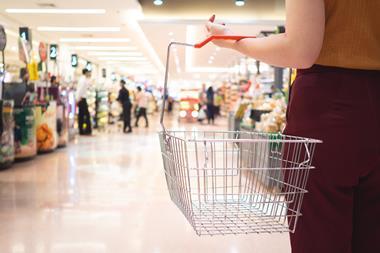
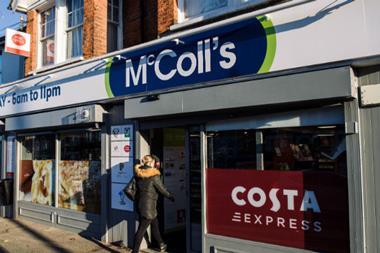
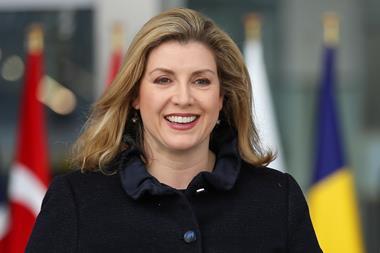
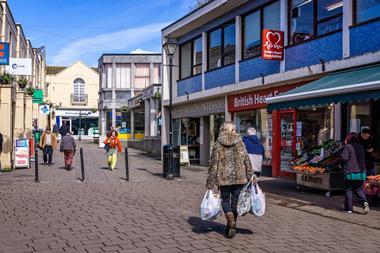
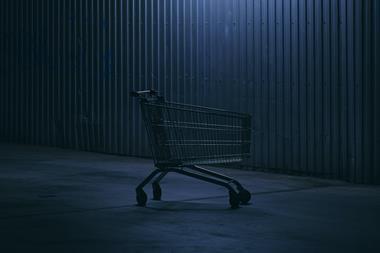
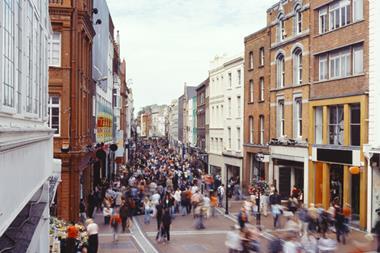






No comments yet